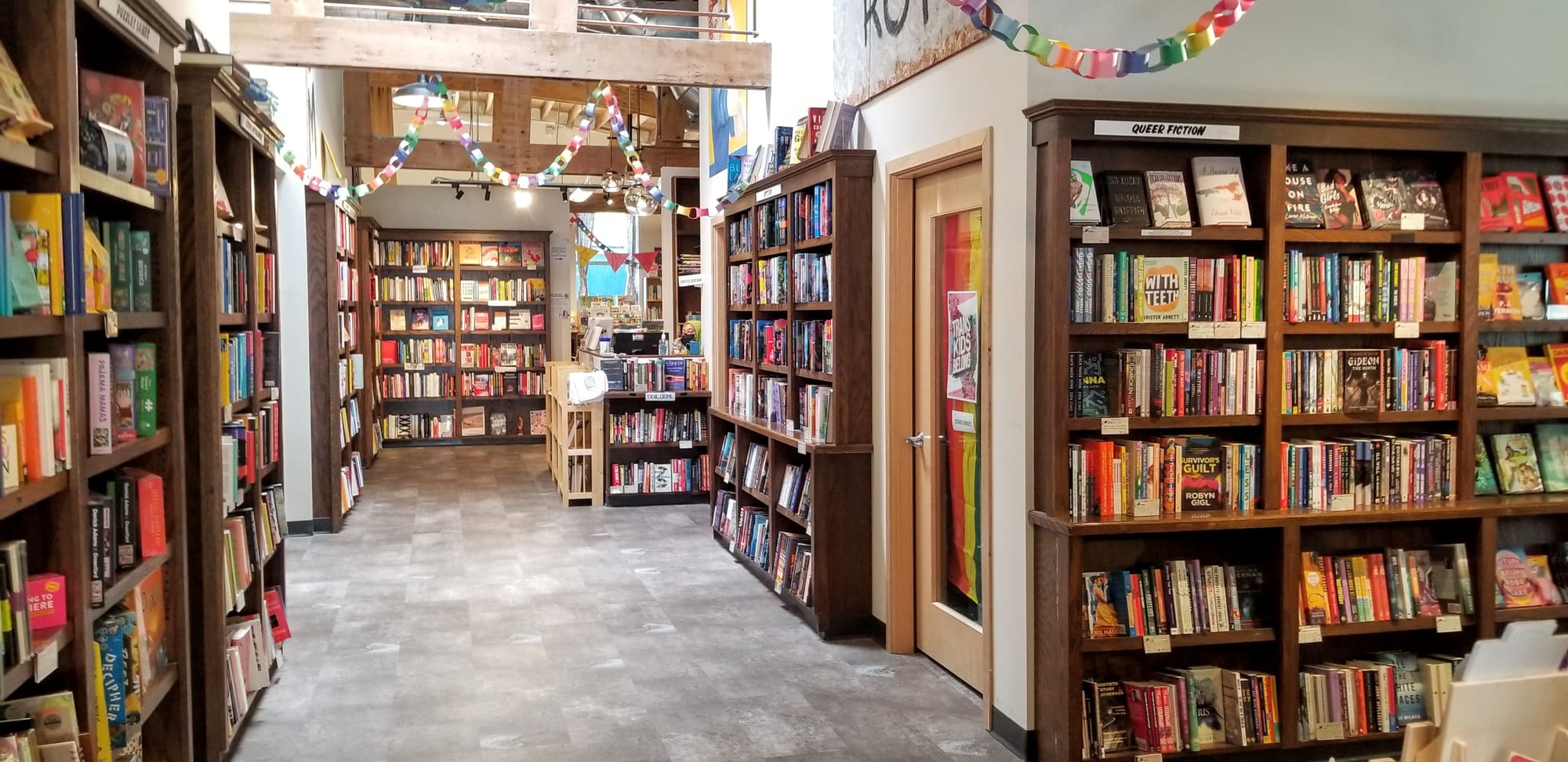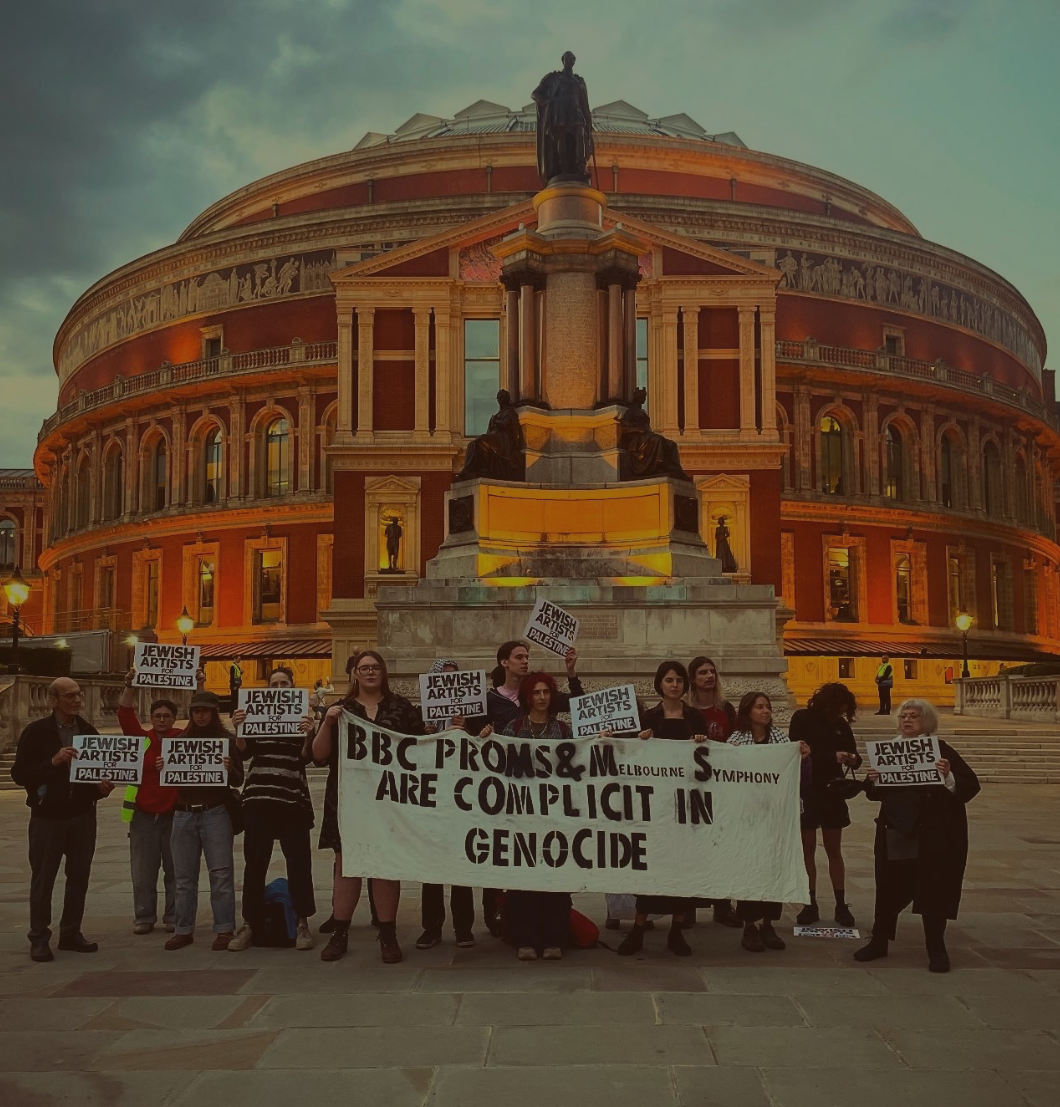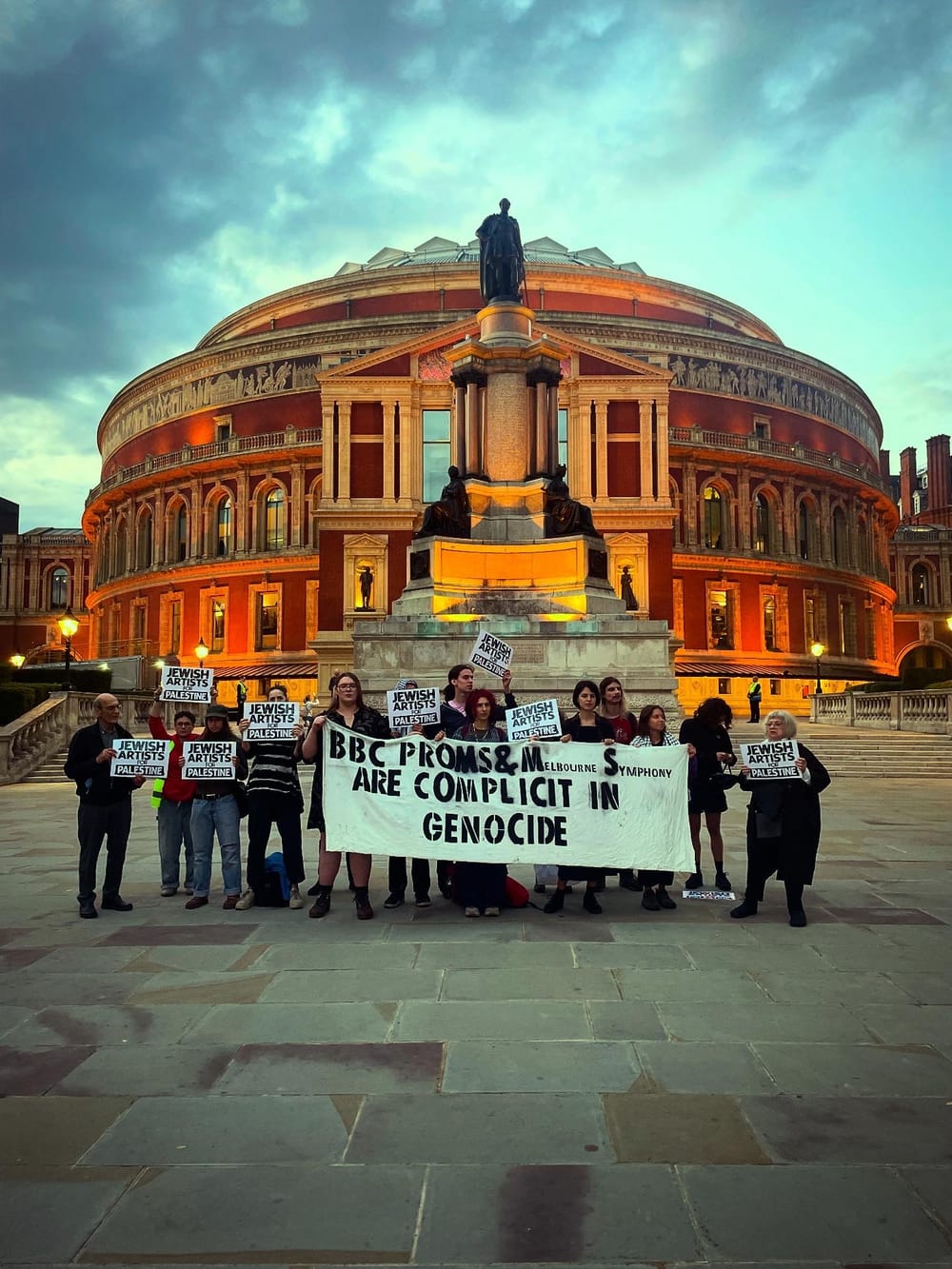Against the rise of gender critical non-fiction
A case against the publishing industry's apolitical facade.

For-profit industries that market themselves as kind and inclusive, and recruit workers who are invested in that image, are prone to a certain kind of PR crisis - namely, that cruelty sometimes pays, but taking its money degrades your image. The UK publishing industry has largely managed to avoid such image crises in recent years, but its embattled relationship with politics and funding came to a head this spring with the furore over Fossil Free Books (FFB), an organisation of books workers calling for the industry to divest from fossil fuels and the Israeli occupation of Palestine. FFB specifically targeted Baillie Gifford, formerly a major sponsor of UK literary festivals, asking the investment company to divest £2.5-5bn from the fossil fuel industry and “nearly £10bn invested in companies with direct or indirect links to Israel's defence, tech and cybersecurity industries”. Several festivals subsequently dropped Baillie Gifford as a sponsor, and it withdrew from all other UK festivals.
In the wake of Baillie Gifford’s departure as a festival sponsor, the novelist Howard Jacobson argued that FFB’s activism was destructive to the arts, as “the best art doesn’t have an agenda, the activist has nothing else”. Such a statement implies that, fundamentally, art becomes poisoned – and creatively weakened – by politics. But, to quote Sara Ahmed, the protestor is a necessary killjoy: they “expose the bad feelings that get hidden, displaced or negated under public signs of joy.” Jacobson’s article defends an art world under threat from activists, but makes no mention of economic forces limiting many people’s access to art, like the 70% of Birmingham libraries currently at risk of closure, or digital media being routinely destroyed or made unavailable in the streaming era. This omission upholds the idea that art spaces and art people with special status – most often conferred by whiteness and inherited wealth – should be free, even in a burning world, from the burden of feeling bad.
Free expression for some
For some to be free of that burden, others must silently carry it. Publishing in Britain has a serious transphobia problem, one that has only worsened since an anonymous letter to the Bookseller warned, three years ago, that it was widely tolerated within the industry. More openly anti-trans books are being published with substantial platforms. Many publishing workers are discontented about industry transphobia, but fear online harassment and punishment from their employers if they speak out against it. As such, the story of the anti-trans books industry remains unwritten.
Since 2020, British publishers have released a glut of books that argue that trans people are deluded, mentally ill, or socially dangerous. Some, like Gay Shame by Gareth Roberts, laugh at the idea that trans women are women and call transition surgeries “medically sanctioned mutilation”, while others, like Helen Joyce’s Trans, take a superficially conciliatory tone but state that “humans cannot change sex” and refer to trans women near-exclusively as “males”. Others, such as Abigail Shrier’s Irreversible Damage, characterise transness among adolescents as a “contagion” – i.e. a communicable illness. These books can be found in almost all chain bookshops in the UK; though rarely recognised as such, this is, of course, an immense violation of trans people’s dignity.
Some books in this subgenre advertise in their titles, subtitles and blurbs that transness is in some sense fictional – “Why Reality Matters for Feminism”, “Where Ideology Meets Reality” – while others flaunt provocative visuals of trans people as ruined. The cover used in the US and on UK hardbacks of Irreversible Damage depicts a young child cored like an apple: seemingly a visual realisation of the gender critical movement’s frequently observed preoccupation with “girls’” fertility. The UK paperback replaces this image with a less provocative illustration. No wonder these types of books’ blurbs often sound like they’re advertising hot sauce (“punchy”, “zesty”, “wicked”), or talk about “gasping with laughter” or sighing with relief: they are all stoking feelings about trans people through fear, disgust, anger or sadistic joy. They’ve begun to have that effect before the book is opened.
This trend amounts to more than a handful of scattered titles. These works are connected to a small but dedicated gender-critical milieu. Big Four publisher Hachette’s imprint Fleet is likely the most prominent imprint to have gained an association with vocally gender-critical authors, publishing Kathleen Stock’s Material Girls: a book against “gender identity theory”. Fleet was led until recently by Ursula Doyle, who resigned this year over an alleged “hostile working environment", and is currently raising money to sue Hachette for discrimination on the basis of her “gender-critical belief”. Hachette declined to comment.
Some of Doyle’s other acquisitions at Fleet included books about feminism from Sarah Ditum and Victoria Smith. Though these texts exist outside the subgenre one might call gender-critical non-fiction, their authors have both been critical of “gender ideology” and have expressed support for Stock, with whom they share a literary agent: Caroline Hardman. In fact, Hardman represents almost every high-profile gender-critical author in the UK. There is a deep, visceral strangeness to seeing opposition to gender self-identification be used as a social glue in the publishing industry; in any case, when you research this subgenre, a lot of the same names keep coming up.
Many of Hardman’s clients who lack the mainstream cachet of Stock, Ditum, and Smith have found a home at Swift, a fast-growing independent press founded in 2020, which is the UK publisher of Irreversible Damage by Abigail Shrier and Gay Shame by Gareth Roberts, as well as various other books from anti-trans voices. Swift rejects the characterisation of some of its books as "anti-trans".
Its imprint Forum, “the new home for free debate and dissenting voices”, is a hub for both anti-trans and anti-anti-racist books. It frequently publishes ‘anti-woke’ books on race by conservative writers of colour, alongside books on population decline and family breakdown.
Far from making the publisher a pariah, Swift’s “controversial” and “disruptive” nature has been embraced by the industry. It was named Trade Publisher of the Year at this year’s Independent Publishers’ Guild Awards, and is a member of the Independent Alliance, a group of 18 publishers headed and supported by Faber & Faber. In plain terms, this means that Faber benefits from the work of its award-winning trans and nonbinary authors – such as Lucas Rijneveld and Akwaeke Emezi – while handling sales and distribution for books like Irreversible Damage that speak positively of taking trans children away from their supportive friends, in an attempt to ensure they don’t become like Rijneveld or Emezi.
Faber & Faber did not respond to a request for comment. Several authors were also approached for comment and none responded.
Invisible workers
Most presses don’t want to be directly associated with transphobic material, but will not publicly denounce it; most people in the industry don’t want to be associated with transphobic material, but very few are willing or able to risk actively opposing it, lest they be labelled too political. The consequences for speaking out are stark: one publishing professional told me fear of “backlash and severe professional risks” has curtailed how much they speak about transphobia, both within the office and outside it. There’s also little protection for many bookshop employees: a Waterstones bookseller was fired in July for saying she would “tear up” her own copies of a gender-critical author’s books, allegedly a breach of the company’s social media policy.
But the suppression of open dissent isn’t ultimately about the specifics of transphobia – it’s a fight to preserve a vision of publishing as a Disneyland industry: a maker rather than a withholder of dreams. Indeed, some of publishing’s main characters becoming associated with anti-trans advocacy, such as J.K. Rowling, are problems for its Disney magic. So is anyone who questions what it takes to operate its rollercoasters.
The idea of art as apolitical seeks to protect product over people; it is essentially an anti-labour vision. It’s likely no coincidence that Howard Jacobson’s editorial against Fossil Free Books mockingly surrounds “book workers” in scare quotes. Protestors must be tarred as children, idealists with soft, unworking hands, so that they do not reveal the status quo of the publishing industry as dependent on a global chain of workers – from editors to cleaners to agricultural labourers – and therefore as inextricable from questions around workers and their welfare. Jacobson has his own image of the world to preserve through his denunciation of Fossil Free Books. FFB’s call to divest from the Israeli occupation on the 76th anniversary of the Nakba conflicts with his belief that “anti-Zionism is antisemitism”, as well as his consistent opposition to boycotts against Israel. His Zionism figures heavily in his literary work, suggesting that what he opposes is not political art, but artists with whom he differs politically.
“The backlash to our campaign has shown a fragility in the way a large part of the industry sees itself,” a spokesperson for Fossil Free Books told me: “As book workers, it is entirely rational for us to challenge the very concrete conditions in which we work, yet for many, such an act reaches beyond the role of the writer. With such an exceptionalist view of books and the spaces that make them, you end up with conversations on stages being defended over the protection of actual lives.”
This is not convoluted purity politics: it is a simple refusal to labour under the banner and logo of a sponsor while it profits from arms and oil. As protestors draw attention to the flow of money in the books industry, so too do they draw attention to the conditions that arise from and direct the flow of ideas. We create these working conditions through valuing some people’s comfort and status, while making the idea of other people’s comfort and status unspeakable in the workplace.
One way these conditions have crystallised domestically is through the quiet ambivalence of the books industry towards trans people, which is a bellwether for its approach towards other groups whose humanity becomes politicised. The proliferation of gender-critical books over the past five years is part of a swirl of movements that have made many public spaces uncomfortable and hostile for trans people, as well as entrenching violations of their basic dignity into the public sphere. If your employer has published or hosted materials that denigrate you, or dehumanise you, or argue against your ability to determine your own gender, then that poisons your work environment; it emboldens anyone who wishes to be hostile to trans staff, and cows trans people by promoting hostile rhetoric as legitimate and protected speech.
Obstructing the work that has created these hostile conditions would have been terribly inconvenient. Everyone in publishing knows each other, works with each other, is dependent on each other’s goodwill, and to speak up is to disrupt a whole chain of relationships. But the endangerment and humiliation of trans people is not a regrettable but unavoidable side effect of a free literary marketplace, or a titillating transgression of orthodoxy. It is, whether it likes to acknowledge it or not, a political choice, and should be opposed – or at the very least understood – as such. The common bookshop party line of “we don’t like it, but it would be censorship not to stock it” is nonsensical. Bookshops select the titles they carry from a pool of millions; no book is ever entitled to shelf space, or to sit free on the shelves without anyone questioning how it got there.
Arguing against the politicisation of books, or any other art form, effectively renders one’s own political work invisible. The bookshop’s performance of brightness, diversity and leisure is what makes the reactionary books industry so powerful. The veneer of beauty and kindness in literary spaces makes bigotry both more painful and harder to challenge, and the charge that marginalised people will kill art by complaining too much is a threat: a threat that people in power will sooner raze everything around them than cede any power. Lucky, then, that it is hard to convincingly threaten those who have been given so little.
Eli Cugini is a freelance journalist, PhD student, and former bookseller.
Author
Sign up for The Pickle and New, From Vashti.
Stay up to date with Vashti.




